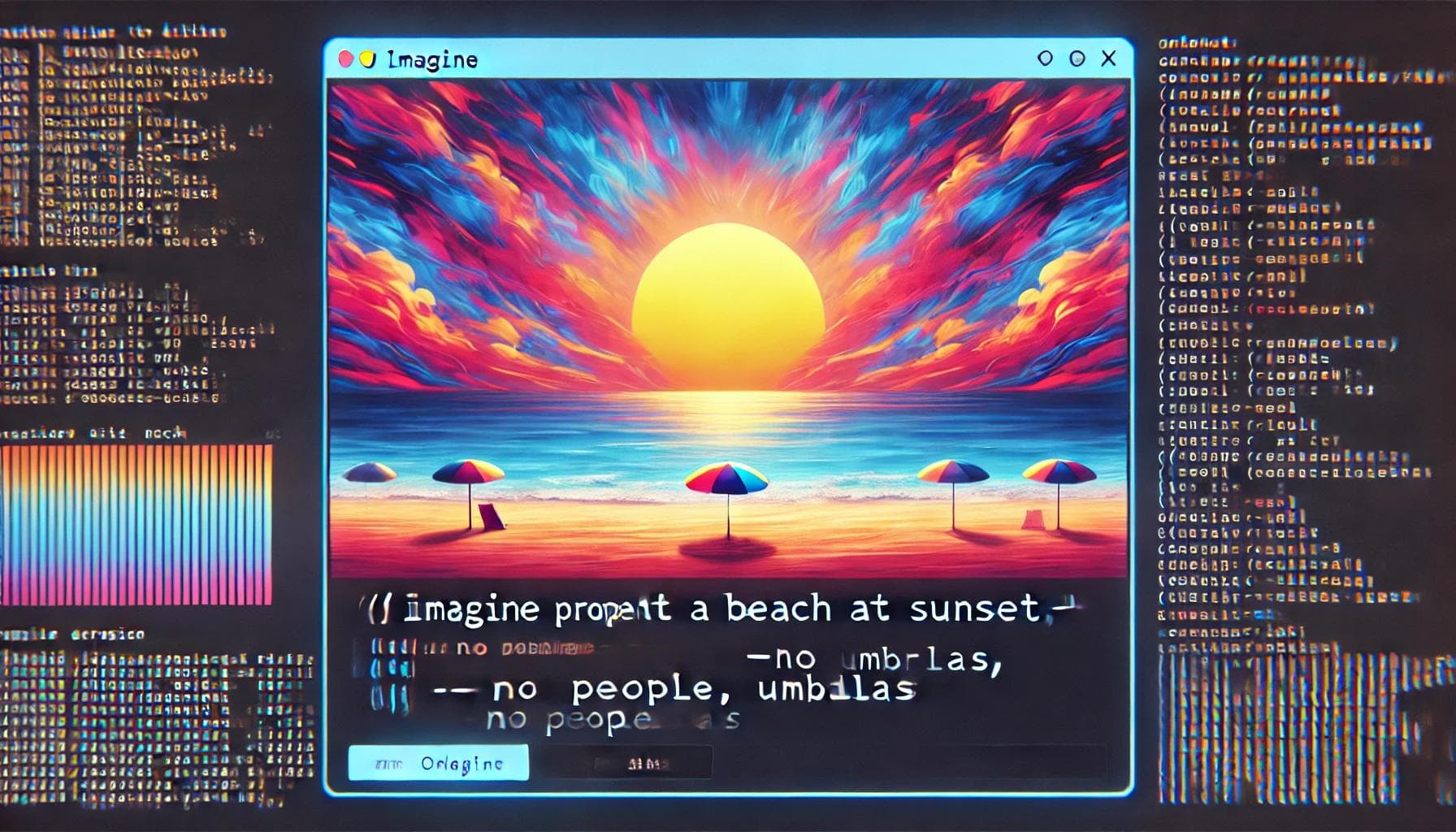Midjourney’s --no command is a powerful feature that allows users to exclude unwanted elements from their AI-generated images. Whether you’re an artist or an enthusiast, this guide will help you understand the command’s functionality, use cases, and advanced techniques to refine your creations.
Introduction to the --no Command
The --no command is designed to help users customize their image generation by excluding specific elements. By specifying what you don’t want, you can guide the AI to create more precise and desirable outputs. This feature is especially useful when dealing with complex scenes or achieving a specific artistic vision.
How to Use the --no Command
Basic Usage
To use the --no command, add it to the end of your prompt followed by the elements you want to exclude. Here’s the syntax:
/imagine prompt [your description] --no [element1], [element2], [element3]
Example:
To generate a serene beach scene without people or umbrellas:
/imagine prompt a beautiful beach at sunset --no people, umbrellas
Multiple Exclusions
The --no command supports multiple exclusions in a single prompt. Separate each item with a comma.
Example:
To create a futuristic cityscape without cars, people, or advertisements:
/imagine prompt a futuristic cityscape --no cars, people, advertisements
Common Use Cases
- Removing Specific Objects:/imagine prompt a serene forest --no animals, people
- Excluding Styles or Features:/imagine prompt a portrait of a woman --no abstract, surreal
- Refining Complex Scenes:/imagine prompt a bustling market --no modern buildings, cars
Advanced Techniques
Combining with Other Commands
The --no command works seamlessly with other Midjourney commands to produce highly customized images. For instance:
/imagine prompt a fantasy landscape --stylize 500 --no dragons, castles
Using Multi-Prompting
Multi-prompting allows for fine-tuned adjustments by weighing different parts of the prompt. You can also use the --no command here:
/imagine prompt a still life painting:: fruit::-.5 --no apples, bananas
Tips for Handling Common Issues
While the --no command is effective, there might be cases where it doesn’t work as intended. Here’s how to address such scenarios:
- Rephrase Your Prompt: Try different wording or descriptions.
- Use Synonyms: If the unwanted element persists, use alternative terms.
- Iterate and Refine: Generate multiple versions and refine your prompts based on results.
Examples
Example 1: Excluding Objects
/imagine prompt a man standing in the rain --no umbrella
This command generates an image of a man standing in the rain without an umbrella.
Example 2: Excluding Styles
/imagine prompt a landscape painting --no abstract, surreal
This generates a realistic landscape painting without abstract or surreal elements.
Example 3: Complex Scene Refinement
/imagine prompt a medieval battle scene --no modern weapons, vehicles
This creates a medieval battle scene without any modern elements.
FAQs
What is the --no command in Midjourney?
The --no command allows users to exclude specific elements from their AI-generated images, helping to achieve more refined outputs.
How do I use the --no command?
Add the --no command to your prompt followed by the elements you want to exclude, separated by commas.
Can I exclude multiple elements with the --no command?
Yes, you can exclude multiple elements in one prompt. Just list them with commas.
What should I do if the --no command doesn’t work as expected?
Rephrase your prompt, use synonyms, or generate multiple outputs for better results.
Can I combine the --no command with other commands?
Absolutely. The --no command can be paired with other commands like --stylize or multi-prompting.
Does the --no command work with all types of prompts?
Yes, though its effectiveness may vary depending on the complexity of the prompt and exclusions.
Generate Images, Chat with AI, Create Videos.
No credit card • Cancel anytime

